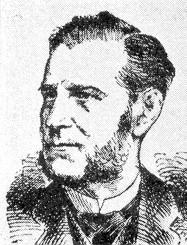1751 - 1811 Person Name: Rev. William Cameron (1751-1811) Alterer of "How bright these glorious spirits shine!" in The Evangelical Hymnal with Tunes William Cameron was born in 1751. He studied at Marischal College, Aberdeen, and in 1785 was ordained minister of Kirknewton, in Mid Lothian. He died in 1811. He was the author of several works.
--Annotations of the Hymnal, Charles Hutchins, M.A. 1872.
================
Cameron, William, M.A., seems to have been born in 1751, at or near Pananich, a hamlet near Ballater, Aberdeenshire, his father, a son of Cameron of Glen Nevis, being apparently then a farmer in the parish of Glenmuick. He studied at the University of Aberdeen (Marischal College), where he graduated M.A. in 1770, was ordained parish minister of Kirk-newton, Midlothian, in 1786, and died at Kirk-newton, Nov. 17,1811. Though not a member of the Committee appointed by the General Assembly of 1775, to revise the Scottish Translations and Paraphrases of 1745-51, yet the burden of revision seems to have fallen upon him (probably through the influence of Dr. Hugh Blair), as to him are ascribed the changes made in 1775-1781 in no less than 34 of that collection, which in the 1781 are numbered thus:—Nos. 1, 3, 4, 6, 7.22, 24, 26, 32, 34, 36, 39-43, 45-47, 49-52, 54-57, 59-61, 63, 65-67. He is also said to be the author of Nos. 14 and 17, in the 1781 collection, and to have altered Nos. 5, 12 of those first included there. His published works are:—
(1) Poems on Various Subjects (Edin., Gordon & Murray). 1780, containing 8 poems, 3 fables, and 20 lyric odes, two of which are called hymns. (2) Poems on Several Occasions (Edin., A. Constable & Co.), 1813; with 2 poems (1 from 1780), 2 fables (from 1780), and 23 lyric odes. Of the lyric odes 6 are so-called hymns (2 from 1780), and 5 are Psalm versions. Of the remaining twelve, 7 are from his 1780 volume, and 6— including a continuation of Dr. Beattie's Minstrel, in two books—printed for the first time. But neither volume contains any of the original hymns or recasts he is said to have contributed to the Translations and Paraphrases of 1781.
The ascriptions above are taken from the markings by Cameron's eldest daughter in a copy of the Psalms and Paraphrases kindly lent by her son, Mr. R. G. Sillar, of Bexley, Kent. Another son, Mr. W. C. Sillar, of Blackheath, London, possesses a us. volume of poems by his grandfather, which, however, like the printed volumes, contains none of the Paraphrases of 1781. To Cameron, No. 12 of the 1781, and the changes made, in 1781, on Nos. 13,15, and Hymn iv. have been sometimes ascribed, but they are not assigned to him in his daughter's markings. These markings thus apportion the remainder of the Scottish contributions:—to Logan, Nos. 8-11,27, 31, 63,58, and Hymn v., besides No. 48, which he merely altered, and No. 59, in which he probably had no share: to Logan and Morison, No. 28; to Morison, Nos. 19, 21, 29,30,35, besides No. 38, which more probably owes its form in 1781 to Bruce or Logan: to Blair Nos. 4,33, 34, 44 (a cento): to Robertson, Nos. 25, 26,42, 43: to Blacklock, No. 16: to Randall, No. 49: and to Ogilvie, No. 62. They also give Logan as alterer of Nos. 2, 18, 23, 25, from the 1745-51; and of No. 30 of those added in 1781. Bruce's name is never mentioned. Nos. 6,12,18,23,52, are ascribed to Watts—so far as we can see without shadow of proof—while the recast from Watts, No. 50 in 1781, is ascribed to Randall.
A list by the late Principal Lee of Edinburgh (now, as revised by the late Dr. David Laing, in the possession of Mr. William Bonar, Kensington, London), professedly based on a list in the possession of Cameron, differs in ascribing No. 12 of the 1781 to Cameron, and the alterations on Nos. 13,15; while not ascribing to him the alterations on Nos. 5, 32,56. It marks as anonymous from the 1745, Nos. 23, 26, 30 (!), 52, 59. The recast from the 1745, No. 38, it ascribes to Logan, and the recast No. 50, from Watts, is given as anonymous from the 1745. [Rev. James Mearns, M.A.]
--John Julian, Dictionary of Hymnology (1907)
William Cameron

